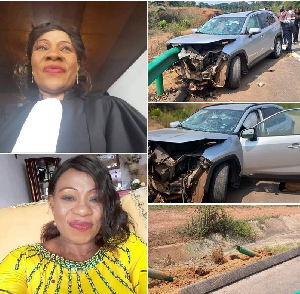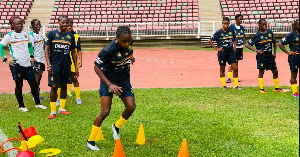At least 10 people have been killed and 45 churches set on fire since protests erupted in Niger over the French magazine Charlie Hebdo's depiction of the Prophet Muhammad, police say.
The government has declared three days of mourning for those who died.
Hotels and bars were also burned to the ground during a weekend of violent protests, the authorities said.
Islamist gunmen killed 12 people at Charlie Hebdo's offices in an attack earlier this month.
The cover of the magazine's latest edition, published after the attack, featured a cartoon of the Prophet Muhammad weeping while holding a sign saying "I am Charlie".
It led to criticism from many living in Muslim-majority countries who said the magazine's editors were being unnecessarily provocative.
Niger's interior minister said that some of those taking part in the weekend protests held up flags supporting Boko Haram, an Islamist group based in neighbouring Nigeria.
But the BBC's Bashir Saad Abdullahi in Niger says political friction is also likely to have played a role in fanning the violence.
In the capital Niamey at least five people were killed during the clashes, while another five died in the southern city of Zinder.
More than 170 people were injured, officials said.
Analysis: Bashir Saad Abdullahi, BBC News, Niger Niger's population is 99% Muslim, so it wasn't a surprise that there was a reaction to Charlie Hebdo's caricature.
But what was surprising was the scale of the subsequent protests and violence.
Similar demonstrations in the past have been conducted peacefully, and even the authorities could not come up with an answer as to why the latest riots turned ugly.
One school of thought is that protesters were angry about their president attending the solidarity march of world leaders in Paris after the attack on Charlie Hebdo's office.
A second theory is that the violence was fuelled as much by politics as religious grievance - an idea given credence by the fact that protests started in the opposition stronghold of Zinder.
The last and the most complex theory relates to Boko Haram, the Islamist militant group from neighbouring Nigeria.
Officials are reportedly investigating whether the group were involved in stoking the protests - they say a Boko Haram flag was seen - though whether the government is merely exploiting the group to gain outside sympathy remains to be seen.
According to a police spokesman, a Christian school and orphanage were torched during the riots.
Niger's President, Mahamadou Issoufou, was one of six African heads of state to attend a unity march in Paris after the attacks against Charlie Hebdo.
Protests against the Charlie Hebdo cartoon were also seen in several other countries.
Friday demonstrations in the Pakistani city of Karachi eventually turned violent, while protesters took to the streets in the Sudanese capital of Khartoum and the Algerian capital, Algiers.
On Saturday there were further protests in Somalia.
Opinions of Tuesday, 20 January 2015
Auteur: BBC















